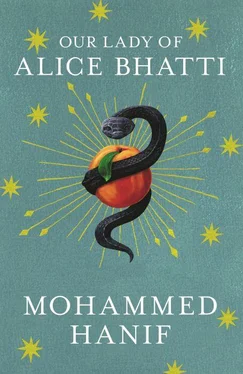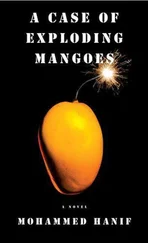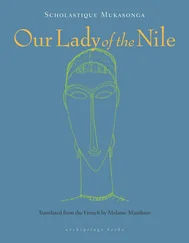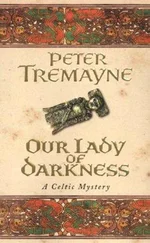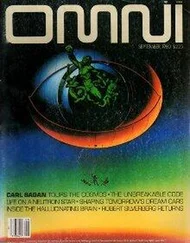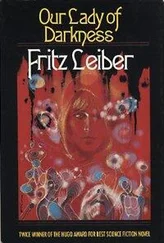“I am no bishop’s daughter, not even related to a common priest. But it never occurred to me to change my name.”
“Well I like the name Alvi. And changing back to Massey might give someone the idea that here is a Musalman abandoning her faith. And you know how much they disapprove of that. Listen, I am a fifty-one-year-old single woman. That is a whole religion in itself, with its own rituals. It has its own damnation and rewards. I don’t think I need to shout Lord Yassoo’s name on street corners to prove who I am. Can you make some tea now? Two tea bags for me, please.”
♦
Next morning, over breakfast, Hina Alvi is relaxed. With her washed hair draped in a towel, she helps Alice to bathe Little, who can’t seem to make up his mind whether he likes being immersed in warm water or not. One moment he giggles, the next moment he begins to cry his lungs out.
It’s after Hina Alvi has made breakfast of toast and fried eggs and Alice has made two cups of tea that Alice musters up the courage to talk about her pregnancy. Hina Alvi isn’t surprised, and if she has any sarcastic insights to share about contraceptives and nurses, she keeps them to herself. Her advice is measured and to the point. Alice needs to tell Teddy immediately. The only thing marriage is good for is children. Men change after they have children; they don’t necessarily become better human beings but bearable human beings. Sometimes they become responsible and grow up, even bums like Teddy have the potential. Alice must not give him the impression that she is planning to leave him, even if she is planning to leave him.
“You go, make him a meal and wait for him to come home. Then sit down at the table with him and tell him with a smile. Tell him he’s going to be a father. They like the sound of that. And if he continues to be an absentee dad, then we’ll kick him out.”
Alice Bhatti is not sure if this is such a good idea. She has just cleared out her wardrobe, she doesn’t want to lug her stuff back to Al-Aman and pretend nothing has happened. And what would she do with Little? She can’t leave him with Hina Alvi.
“I’ll take him with me to the Sacred. I have got enough slaves there to take good care of him.” Hina Alvi is precise with her instructions. “And when you are done, come back to work. We will both wait for you there.”
Inspector Malangi brakes hard to avoid running over a spotted dog that jumps from the pavement and starts to limp leisurely across the road. The car stalls. He has been planning to get his battered Toyota overhauled soon or replace its engine (or get a new chassis and a new body as well, but he has been wondering whether if he replaces both it would still be the same car). He restarts the car but before he can move forward, the traffic light turns red. Inspector Malangi hears the knock on his car window and rolls it down to shoo away a boy who, in his thick jacket, is clearly overdressed for the weather as well as this kind of work; he is offering him a trip to Mecca in lieu of five rupees. Since when did beggars start wearing Klashni jackets at traffic signals? Inspector Malangi wonders. He has just given and received his farewell presents at the G Squad headquarters. His short speech had ended with a plea to ‘forgive and forget but remember me in your prayers’.
He is feeling generous, like people do when embarking on a new life, and his hand automatically reaches for his wallet as he prepares a short lecture about the curse of begging and the dignity of work. The boy opens his jacket, flashes a rusty-looking Mauser, then bends down, puts his neck through the window and whispers, “Hands on the steering wheel.” The traffic signal starts its countdown: 90, 89, 88…
Inspector Malangi almost pities this boy who, with a gun tucked inside his jacket, thinks that he has got the situation under control. If Malangi presses the accelerator down to the floor, he’ll probably find the boy’s decapitated head in his lap, leaving a writhing, headless body on the road. But he knows that boys this age don’t understand the velocity of life. There was a time when he would have done something like that just to teach the boy a lesson, but he has left that life behind. He wants to spend his retirement working on his children’s maths, a subject in which they have consistently underperformed, despite private tuition. After thirty-six years of public service, the only thing Inspector Malangi has learned is that the next generation needs to do better at maths than you.
“Take out your wallet and put it on the dashboard.” The boy in the Klashni jacket looks sideways as he barks his orders. A newspaper hawker, an old man in a tracksuit, hurries towards Inspector Malangi’s car waving a copy of The Daily Ummah , but then sees the robbery in progress and swiftly crosses the lane using the newspaper to fan himself and continues to hawk his paper on the other side of the road.
Inspector Malangi feels a pang of nostalgia for the life he has left behind just this afternoon. The days and nights that he spent hunting them down, talking to them late into the night, testing their supple young bodies to the limit. He’ll miss these boys. This one looks quite jittery and nervous, someone new at this, someone still not sure whether what he is doing can be a long-term career option or just a one-off for tidying up his monthly budget. Inspector Malangi looks past the boy in the Klashni jacket, and, as he expected, he sees another boy on a motorbike, poised to take off, revving the engine, looking at the traffic building up behind them, then looking at the traffic light, where the red-digit countdown continues in slow motion. A baseball cap is pulled over his face, and Inspector Malangi has that veteran policeman’s premonition that he has seen this boy before. But boys this age all look the same; fashion victims with no individuality.
For a moment Inspector Malangi thinks that it’s ironic that he is being waylaid by boy robbers on the very day that he has quit the G Squad, hung up his uniform, returned his government-issue Beretta and started his life as a law-abiding civilian, the kind of harmless, responsible citizen they show in life-insurance advertisements. He looks at the lone traffic policeman standing on the roadside, cooling himself under the shade of a tree. Inspector Malangi realises that there’s nothing ironic about his situation. There are probably a few hundred people being held at gunpoint across the country right now; what is so special about him? Boy robbers can’t look at your face and tell that only two hours ago you were a feared cop, heading an elite police squad in the city. And isn’t that a relief, because if they knew who they had got at gunpoint, what ideas might they get in their young, hot heads?
♦
Inspector Malangi has spent his last afternoon at work tying up loose ends: two prisoners are transferred to judicial custody, another one is told to walk. He runs fearing a bullet in the back of his neck, but Inspector Malangi just stands there waiting for him to turn the corner, then returns to his office and starts clearing out his desk. He is going through his drawer when Teddy shows up looking lost, like a pet whose owner has suddenly decided to move house and has no plans to take him along. Inspector Malangi remembers that here is one more person who needs to be sorted. He can’t tell Teddy to just walk out, that he is free to go. Where will he go? Other members of the G Squad have their careers; they can take care of themselves. This boy needs his help. Teddy’s left arm is in a cast and perched in a sling around his neck. Inspector Malangi observes his plastered arm mournfully but doesn’t ask him how he got hurt. With his career over, all curiosity about human affairs has drained out of him. Who cares why people shoot each other or themselves. There is always a reason. A good reason. Or a bad reason.
Читать дальше
